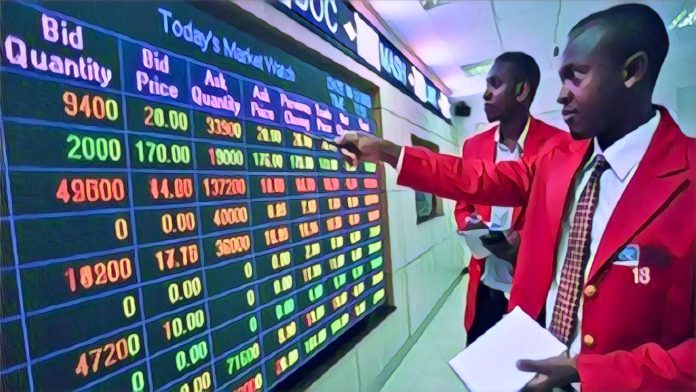In a remarkable display of resilience, the Nigerian stock market has bucked the global economic downturn trend, registering a substantial gain of N6.29 trillion in a week. This performance contrasts sharply with the overall decline in share prices across major global markets.
Data from the Nigerian Exchange Limited (NGX) reveals that this upward trajectory is largely attributed to significant interest in various stocks across key sectors like industrial, insurance, oil and gas, and consumer goods. Investors have been actively engaging in bargain hunting activities, particularly in anticipation of the 2024 full year earnings and subsequent dividend declarations.
The market saw exceptional performances from heavyweight stocks such as Dangote Cement, which soared by 53.9%, and BUA Cement, rising by 45.8%. These impressive gains propelled the benchmark index up by 13.84% to a record high of 94,538.12 points. As a result, the market’s Year-to-Date return escalated to +26.4%, while the market capitalization swelled from an opening value of N45.442 trillion to N51.735 trillion at the week’s close.
The industrial goods sector led the charge with a staggering 46.9% weekly gain, followed by significant rises in the Insurance (+14.9%), Oil and Gas (+8.8%), and Consumer Goods (+8.2%) indices. The Banking sector, however, experienced a marginal decline of 0.1%.
This bullish run in the Nigerian stock market stands in stark contrast to the global markets’ performance, marred by tepid economic data from China and uncertainties around the Federal Reserve’s rate cut timings. Major US indices, including the Dow Jones Industrial Average and the S&P 500, retreated amid robust US retail sales data. European markets also witnessed a continued decline due to concerns over early interest rate cuts by central banks amidst persistent inflation.
In Asia, mixed sentiments were observed. While Japan’s market edged higher due to slowing inflation and expectations of an accommodative monetary policy, China’s market suffered losses amid bleak economic outlook and reluctance from authorities to implement significant stimulus measures. Emerging markets mirrored this downtrend, with losses in China and India. However, the Frontier market remained positive, bolstered by bullish sentiments in Vietnam.
On the NGX, a total turnover of 5.179 billion shares worth N77.797 billion was recorded in 79,012 deals, a notable contrast to the previous week’s 5.719 billion shares valued at N88.828 billion in 80,064 deals.
The Financial Services Industry dominated the activity chart, contributing 61.60% and 42.95% to the total equity turnover volume and value, respectively. The Conglomerates and Consumer Goods Industries followed suit, with significant trading volumes and values.
Top trades were observed in Transnational Corporation Plc, Jaiz Bank Plc, and AIICO Insurance Plc, accounting for 21.09% and 12.21% of the total equity turnover volume and value.
Market operators, like Vice-Chairman of Highcap Securities, David Adonri, attribute the market’s gains to increased liquidity and investor interest. However, Adonri cautioned that this trend is driven more by sentiment than fundamentals and remains susceptible to shifts in government policies or company-specific news.
“The market is inherently information-driven and unpredictable. Even a slight change in government policy could quickly reverse its direction. Anything can happen at any time,” Adonri said, highlighting the volatile nature of the stock market.
This recent performance of the Nigerian stock market, defying global economic headwinds, showcases the underlying strength and potential of the Nigerian economy. It also reflects the dynamic nature of the stock market, heavily influenced by investor sentiment and external factors such as government policies and global economic conditions.



